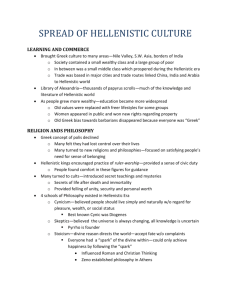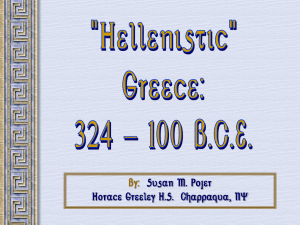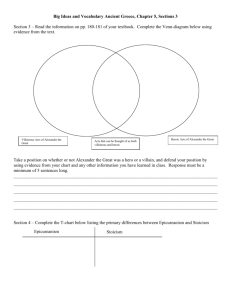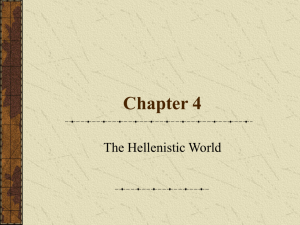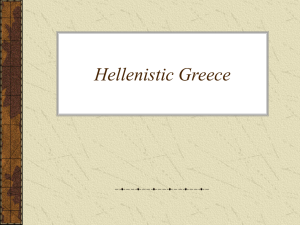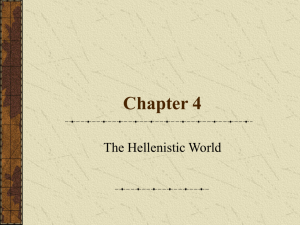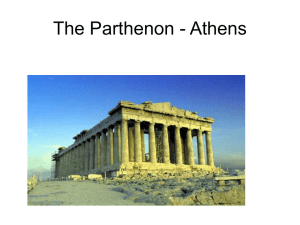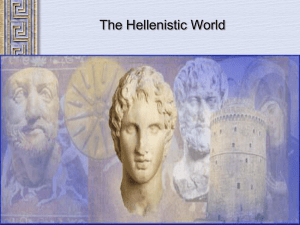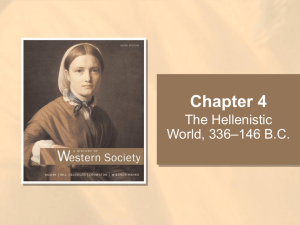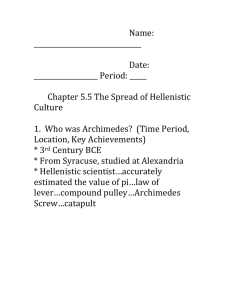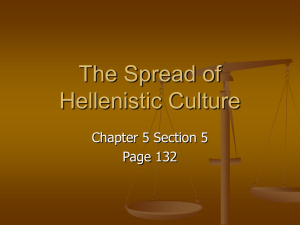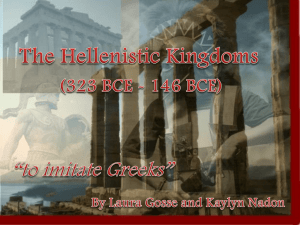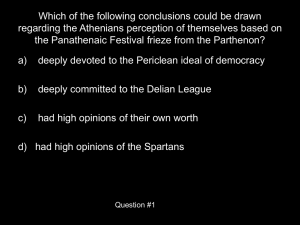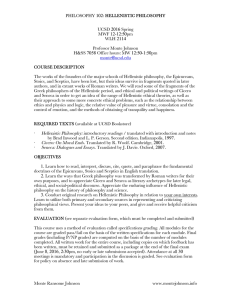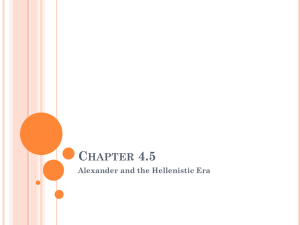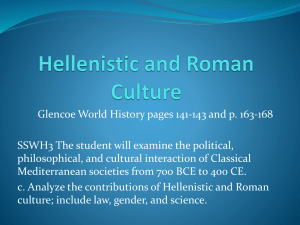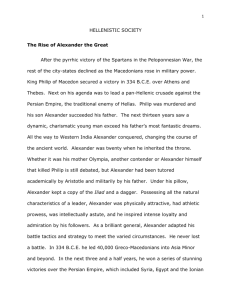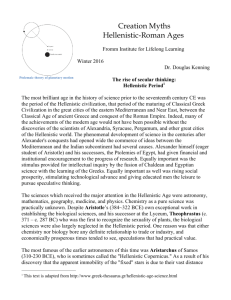Politics, Philosophy, and Science in the Hellenistic World.
advertisement
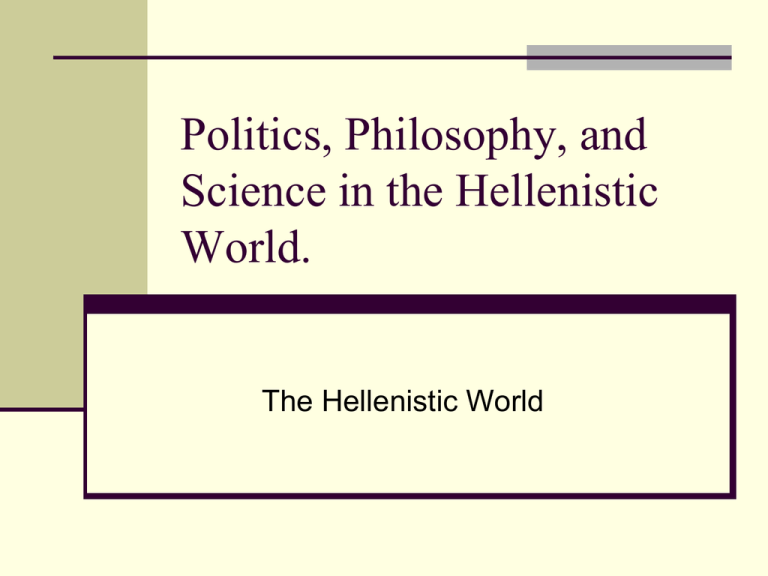
Politics, Philosophy, and Science in the Hellenistic World. The Hellenistic World United Empire in Pieces Macedonian generals in conflict over control of the empire. See map: Four primary kingdoms Stability for several centuries Strain between Greco-Macedonian rulers and native populations. Greeks and Macedonians the ruling class…some were as small as 2.0% of the population Urban revolution This was an urban revolution Alexander focused on the foundation of cities. Military settlements were founded. Greeks relocated to fill voids as administrators, architects, engineers, etc… Economic trends Largely agrarian Aristocrats owned land worked it via rent or slaves. Commerce expanded Trading expanded (Silk Road) Alexander made East-West trade more possible. Culture in the Hellenistic World Importance of Cultural Diffusion Importance of Literature—Egypt (Library of Alexandria) Importance of theatre/drama Centered in Athens Playwrights focused on Comedies Menander Lost to history—”Ladies at Lunch” History Polybius a famed Greek wrote “Inhabited Mediterranean World” Most has been lost to history Focused on the growth of Rome Sought rational motives for events Sculpture Unlike classical age artists the Hellenistic works focused on the “actual” not the ideal form. Best preserved example is the “Old Market Woman”. Meets no qualities of classical sculpture A New Age in Science In Greece science had been an extension of philosophy. Now it was a subject of scientific experimentation. Archimedes Noted for: Geometry Hydrostatics Numerical value of Pi Archimedan water screw Pulley Lever Achievements cont… From Plutarch: “that if they did see but a little rope or a piece of wood from the wall, instantly crying out, that there it was again, Archimedes was about to let fly some engine at them, they turned their backs and fled!” “Give me a place to stand I will move the earth” Philosophy Athens the center of philosophy “The Academy” New schools of philosophy Epicureanism Stoicism Epicureanism Goal of life the pursuit of pleasure—pleasure in the sense of liberation of mental turmoil and worry. The freedom of a mind at rest. How? Free yourself from public activity “We must release ourselve from the prison of affairs and politics” Epicurus Stoicism Founded by Zeno Flourished in Rome Happiness could only be found living in the will of God and that life's problems should be attacked through political virtue. Religion in the Hellenistic World Greek gods were spread with the conquest of Alexander. Primarily localized cults such as those of Isis, Tyche, Zeus, Asarte, Horus, and Atargis. Mystery Religions Often expanded from cults, they promised salvation and eternal life. These faiths which attempted to tackle key questions paved the way for later Christianity.
